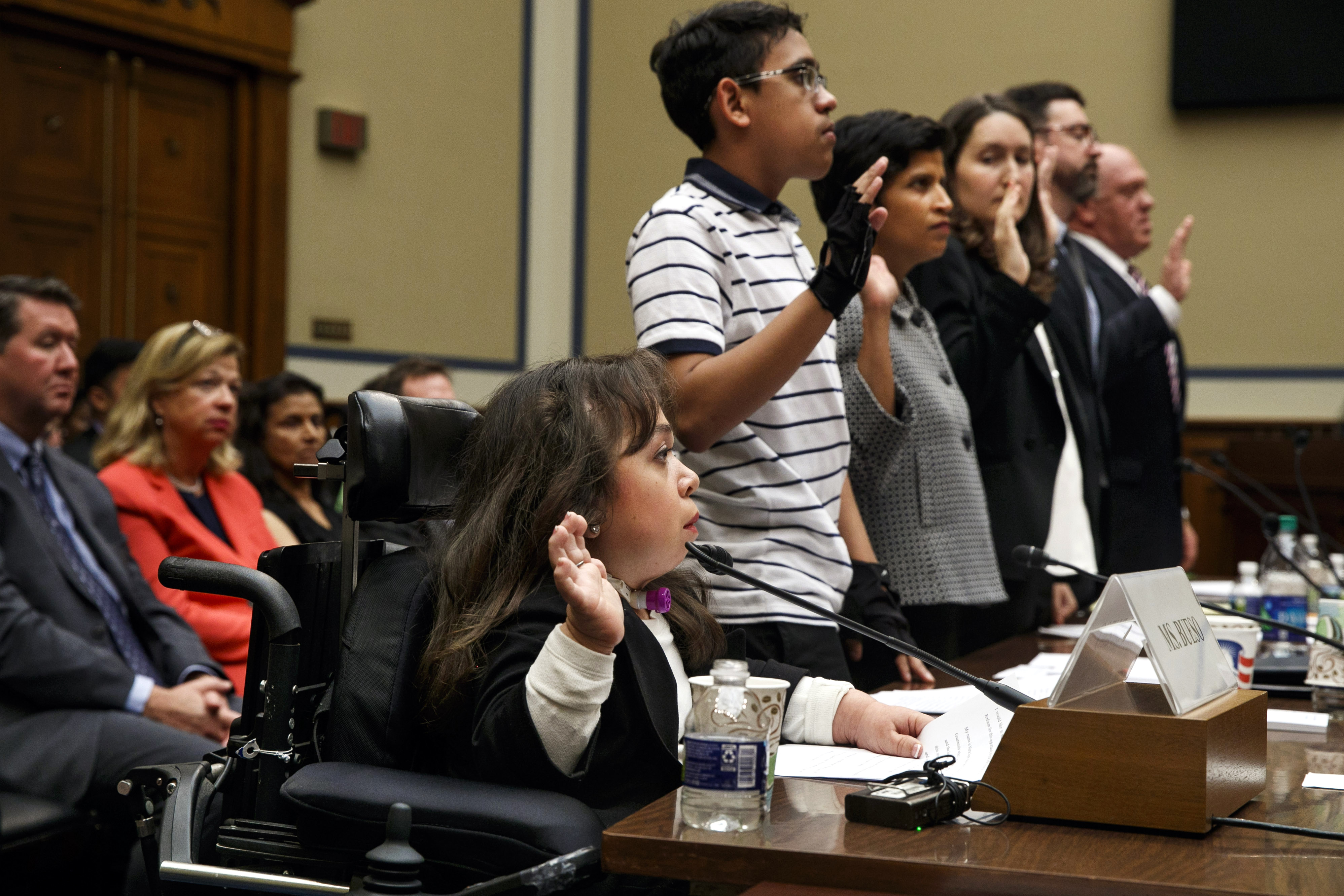Official refuses to tell lawmakers why Trump administration wants to end humanitarian immigration policy


A free daily email with the biggest news stories of the day – and the best features from TheWeek.com
You are now subscribed
Your newsletter sign-up was successful
During a hearing Wednesday on an endangered medical deferred action immigration program, House lawmakers listened as a 16-year-old boy with cystic fibrosis shared his fear that he will die if he is deported back to Honduras, where doctors are unable to provide treatment for his condition. They also heard from Thomas Homan, the former acting director of U.S. Immigration and Customs Enforcement, who said the "bigger problem" is the lack of enforcement along the southern border, which "affects many, many more lives, many more than this policy change."
Under medical deferred action, seriously ill immigrants can apply to stay in the United States without risk of deportation as they receive medical treatment not available in their home countries. Last month, applicants started receiving letters from U.S. Citizenship and Immigration Services telling them such requests were no longer being accepted, and they needed to leave the U.S. within 33 days. After a public uproar, the agency backtracked, saying earlier this month that all pending requests will be reopened.
The House Subcommittee on Civil Rights and Civil Liberties called the hearing in order to understand which member of the Trump administration wants to end the program and why, but the USCIS official called to testify, Daniel Renaud, wouldn't answer those questions, saying he couldn't due to a pending lawsuit in federal court.
The Week
Escape your echo chamber. Get the facts behind the news, plus analysis from multiple perspectives.

Sign up for The Week's Free Newsletters
From our morning news briefing to a weekly Good News Newsletter, get the best of The Week delivered directly to your inbox.
From our morning news briefing to a weekly Good News Newsletter, get the best of The Week delivered directly to your inbox.
Republican lawmakers focused on asking Homan questions about the border, not medical deferred action, CommonWealth Magazine reports. The ringleader appeared to be Rep. Glenn Grothman (R-Wis.), who downplayed the testimony from Sanchez and other immigrants, including Maria Isabel Bueso, who has a rare genetic disease that cannot be treated in her home country of Guatemala. "These people are here to scare people," Grothman said.
A free daily email with the biggest news stories of the day – and the best features from TheWeek.com
Catherine Garcia has worked as a senior writer at The Week since 2014. Her writing and reporting have appeared in Entertainment Weekly, The New York Times, Wirecutter, NBC News and "The Book of Jezebel," among others. She's a graduate of the University of Redlands and the Columbia University Graduate School of Journalism.
-
 The ‘ravenous’ demand for Cornish minerals
The ‘ravenous’ demand for Cornish mineralsUnder the Radar Growing need for critical minerals to power tech has intensified ‘appetite’ for lithium, which could be a ‘huge boon’ for local economy
-
 Why are election experts taking Trump’s midterm threats seriously?
Why are election experts taking Trump’s midterm threats seriously?IN THE SPOTLIGHT As the president muses about polling place deployments and a centralized electoral system aimed at one-party control, lawmakers are taking this administration at its word
-
 ‘Restaurateurs have become millionaires’
‘Restaurateurs have become millionaires’Instant Opinion Opinion, comment and editorials of the day
-
 ABC News to pay $15M in Trump defamation suit
ABC News to pay $15M in Trump defamation suitSpeed Read The lawsuit stemmed from George Stephanopoulos' on-air assertion that Trump was found liable for raping writer E. Jean Carroll
-
 Judge blocks Louisiana 10 Commandments law
Judge blocks Louisiana 10 Commandments lawSpeed Read U.S. District Judge John deGravelles ruled that a law ordering schools to display the Ten Commandments in classrooms was unconstitutional
-
 ATF finalizes rule to close 'gun show loophole'
ATF finalizes rule to close 'gun show loophole'Speed Read Biden moves to expand background checks for gun buyers
-
 Hong Kong passes tough new security law
Hong Kong passes tough new security lawSpeed Read It will allow the government to further suppress all forms of dissent
-
 France enshrines abortion rights in constitution
France enshrines abortion rights in constitutionspeed read It became the first country to make abortion a constitutional right
-
 Texas executes man despite contested evidence
Texas executes man despite contested evidenceSpeed Read Texas rejected calls for a rehearing of Ivan Cantu's case amid recanted testimony and allegations of suppressed exculpatory evidence
-
 Supreme Court wary of state social media regulations
Supreme Court wary of state social media regulationsSpeed Read A majority of justices appeared skeptical that Texas and Florida were lawfully protecting the free speech rights of users
-
 Greece legalizes same-sex marriage
Greece legalizes same-sex marriageSpeed Read Greece becomes the first Orthodox Christian country to enshrine marriage equality in law
